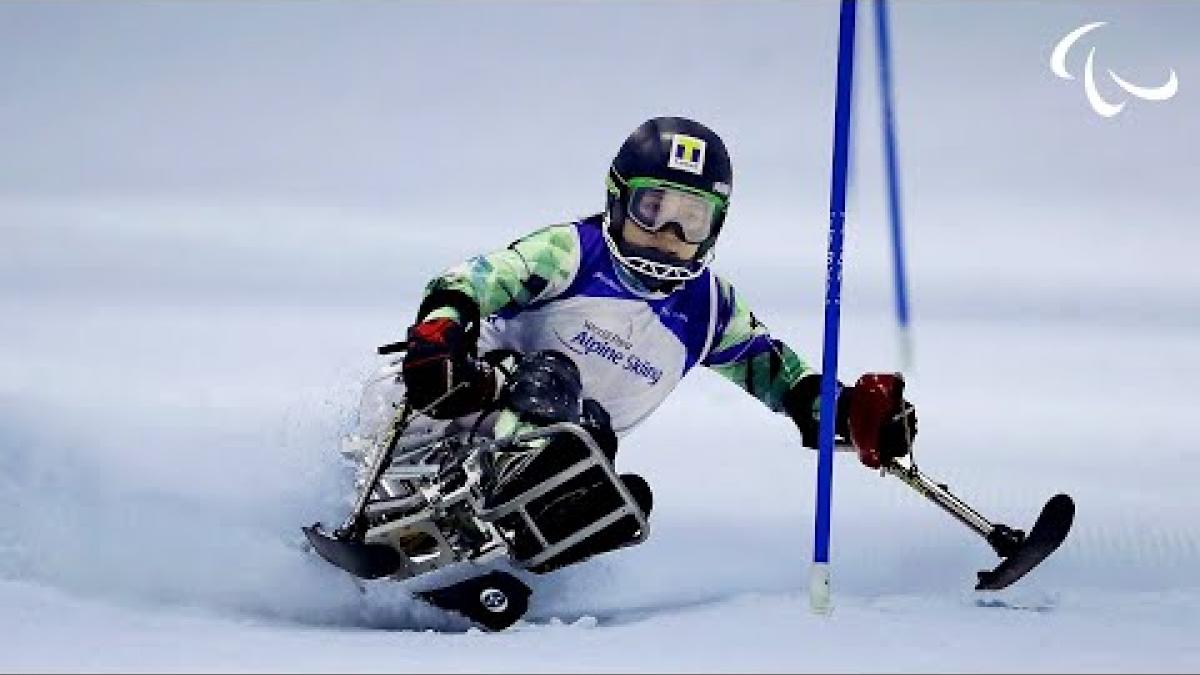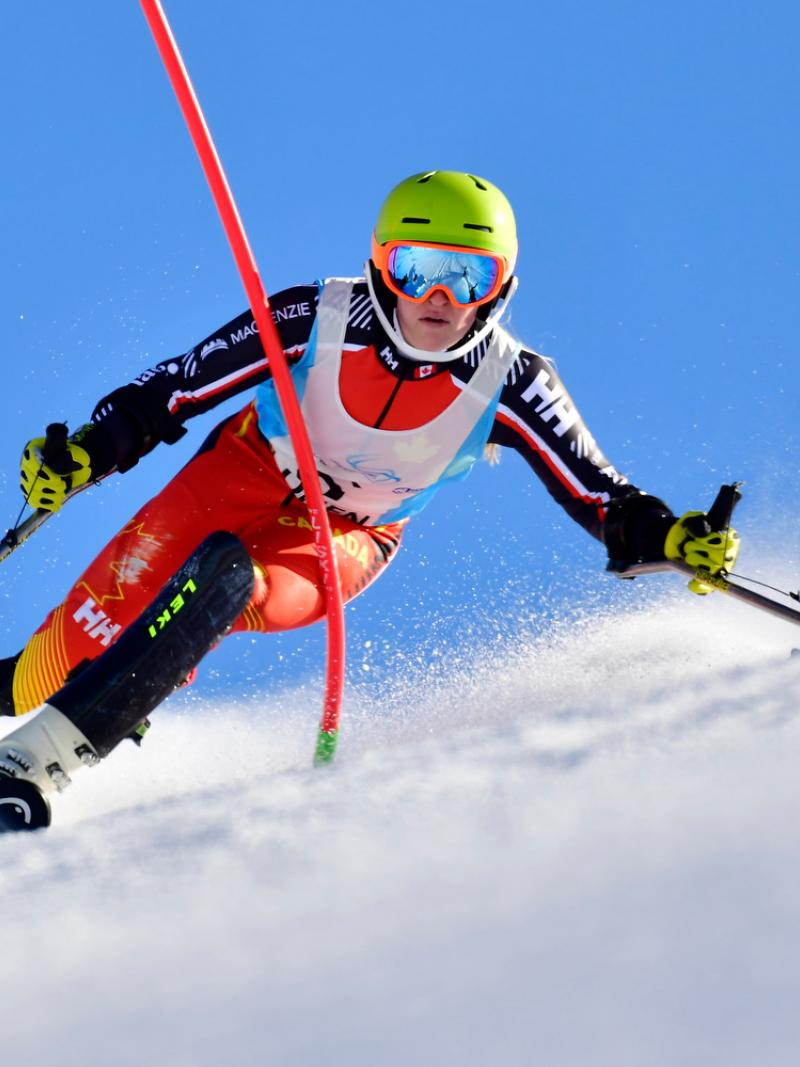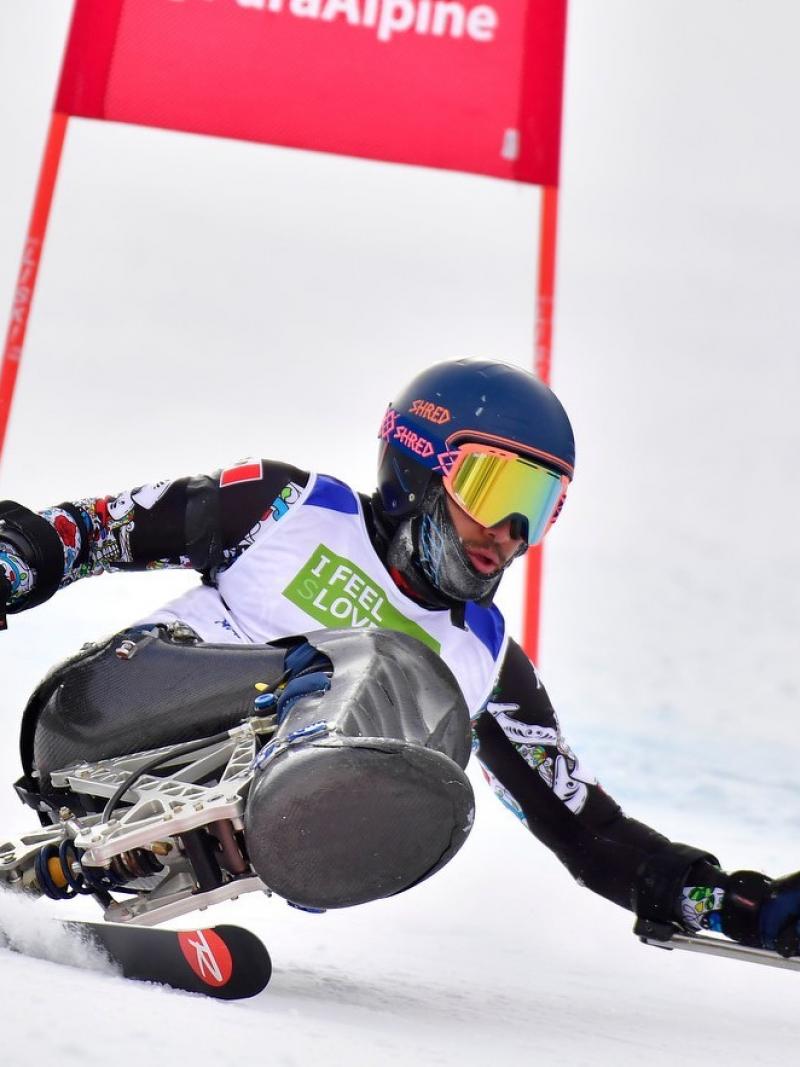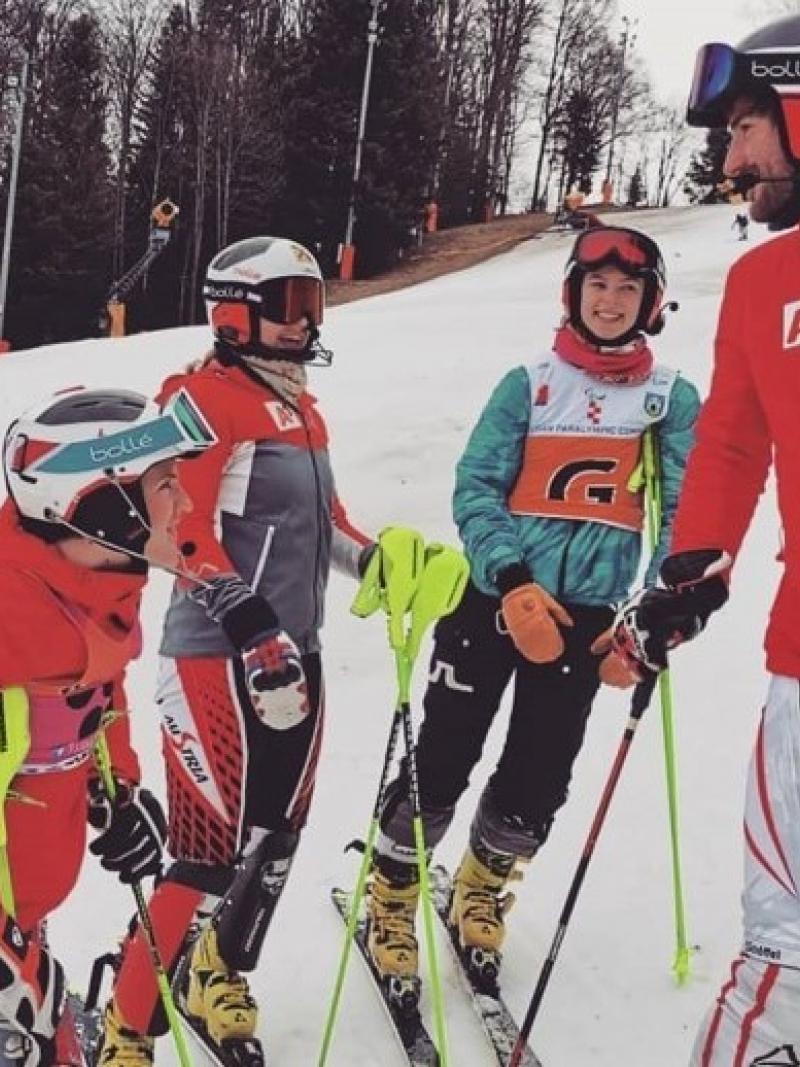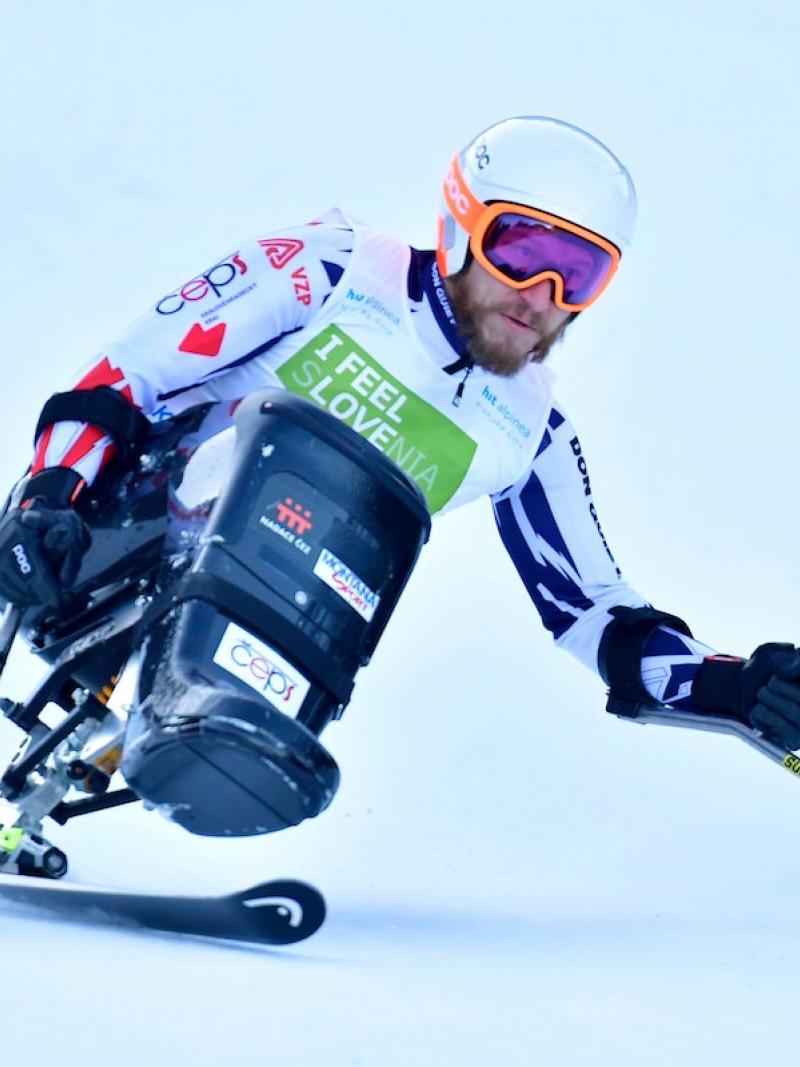Para alpine skiing couple break silence on sex and disability in new book
“It’s not easy but it’s really necessary and we feel good because we know that we are helping a lot of people,” says Paralympian Enrique Plantey 25 Oct 2020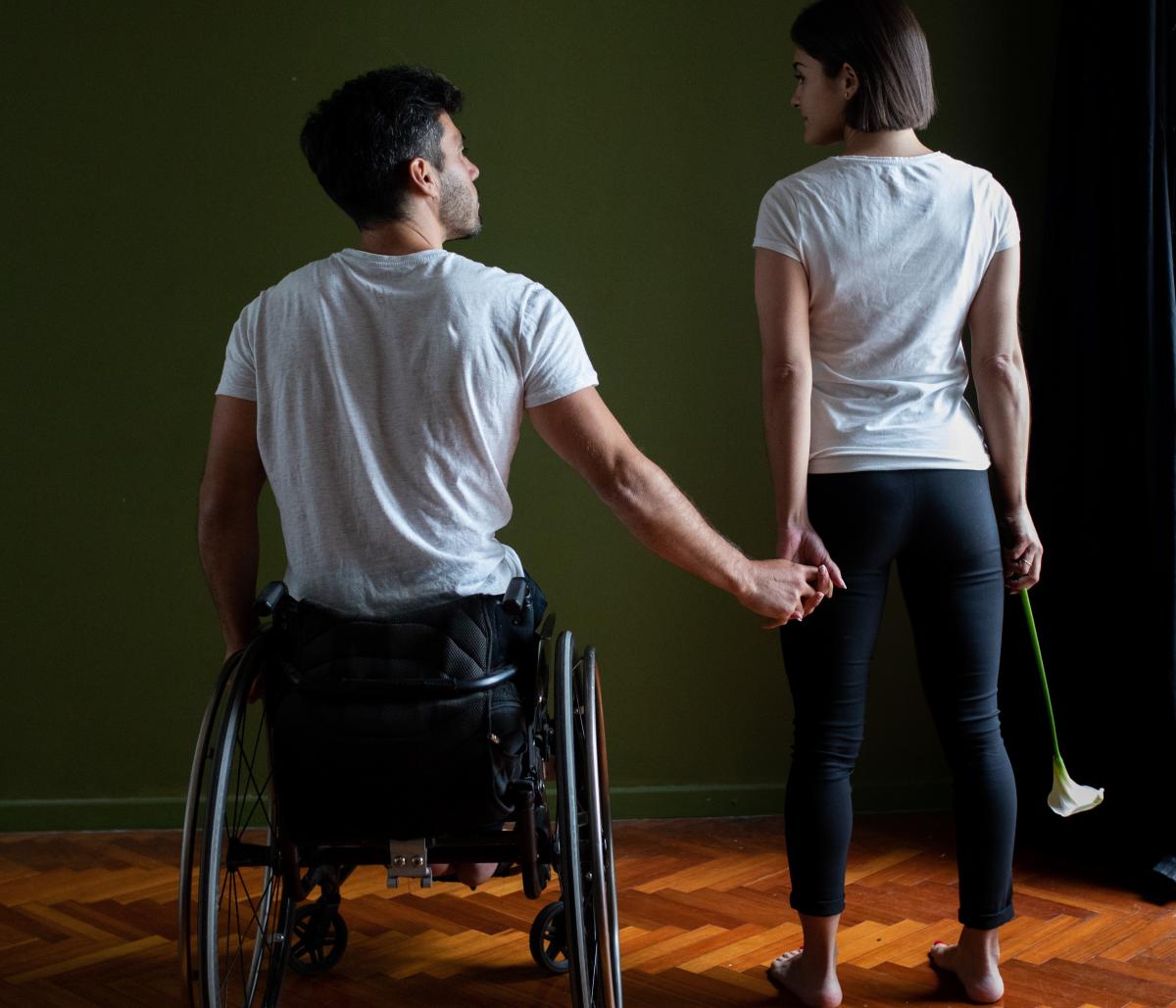
Para athletes talk about a variety of things when waiting for the chairlifts to start working in the morning. But one topic, in particular, is always guaranteed to draw a crowd.
“When all the athletes in their wheelchairs are waiting for the mountain to open, we are together and all the people are talking about different things, and then somebody speaks about sex, everybody looks at him,” said Para alpine skier Enrique Plantey.
“In all parts of the world people want to talk about their experiences because for all people with disabilities sex is a real taboo,” he added.
Sensing this silence about sex and disability, the two-time Paralympian and his girlfriend, nurse Triana Serfaty, decided to start the conversation themselves.
The Argentine couple, who have been together for eight years, are writing a practical guide called Sexistimos on sex for people with impairments, which they plan to publish in 2021.
They also launched an Instagram page offering advice, consultations and live feeds with experts in the field.
Breaking the silence
Plantey has been using a wheelchair since he was a child. As he got older and started searching for information about sex for people with impairments, he discovered that it was limited and the information that did exist was often misleading.
“The riskiest thing was adaptive Kama Sutra. You had graphic images with the wheelchair and the girl here and maybe the girl in another position, but always in the wheelchair,” Plantey said.
“It was about 15 years ago that I started my sexual life, and I said, ‘OK, I will have sex in my wheelchair. There are a lot of positions in my wheelchair’, but that’s not true. In my life I have never had sex in my wheelchair with Triana. Never. It’s really complicated. So now we want to talk about the truth.”
Given the lack of contemporary advice, Plantey and Serfaty looked into ancient methods, like tantric sex, to spark a physical connection. After discovering what worked for them, they wanted to share this knowledge with others, and the idea to write Sexistimos was born.
“We started to try tantra on ourselves, to connect, and then we realised that maybe this could help other people who are in the same situation,” Serfaty said. “We realised that people were asking the same questions that we were asking.”
“In Sexistimos we talk a lot about sex and trust,” Plantey added. “I had an accident when I was 11 years old, and I didn’t have anything like this kind of information. The information that I had is really different from the information that we want to put in this book.”
A Spanish-language guide on sex and disability, Sexistimos will cover such topics as the para-orgasm, masturbation, sexual education, fertility, medication, taboos and communication.
The book will also feature real-life stories of similar couples. Plantey and Serfaty interviewed them, making sure to pick couples of different ages and with different physical impairments.
“We are not sexologists. We cannot write a book that says, ‘If you do this, this is going to work’, but it’s written in first person, so we are talking about the things that we feel and that we know,” Serfaty said.
The book will wrap up with a handful of short erotic stories about people with impairments. An interactive version of some stories will also be featured on the Sexistimos Instagram page where followers could suggest plot developments.
Plantey and Serfaty launched the Instagram page on October 1 and immediately got a flood of messages coming in. In three weeks, they already had more than 3,000 followers.
“A lot of people are writing, ‘Thank you for this space because I have a lot of questions and I don’t know how to talk about them’,” Plantey said.
“A lot of people have really basic questions like, ‘If I want to sleep with a woman, how can I do it?’ or they mention fears about their disability. For example, ‘How can I move from my wheelchair to the bed?’ Simple things that we can answer based on how I do it or someone else does it.”
A love story
Before the social media buzz about Sexistimos, however, there were just the two of them.
Plantey and Serfaty met eight years ago at a dance club. A year later the couple went on the road for nine months as Plantey raced to qualify for the Sochi 2014 Paralympic Winter Games.
At the time, there was no Para alpine team in Argentina so Plantey and Serfaty travelled by themselves, making stops in Chile, Canada, the United States and Europe.
Never having skied before, Serfaty had a steep learning curve ahead of her.
“When I wanted to train, for example, I said, ‘OK, put these gates here, put those gates there,’ and she put the gates in the snow without measuring. Between gate and gate it was one metre, or nothing,” Plantey recalled. “But it was really nice because it was just her and me, and when they asked me, ‘Where is your team?’ I would say, ‘She’s my team’.”
Serfaty went on to accompany Plantey at two Paralympic Games. She currently works as a nurse while Plantey travels to training camps with the newly-formed national team.
After almost a decade as a couple, Plantey and Serfaty are used to being asked questions about their sexuality, whether the questions are coming from friends or drunk strangers at the pub. And now they are giving their answers to an even bigger audience of Sexistimos.
“It’s not easy because we are talking about our private life, but it’s really necessary and we feel good about that because we know that we are helping a lot of people,” Plantey said.





